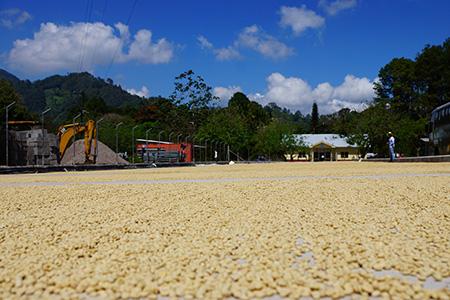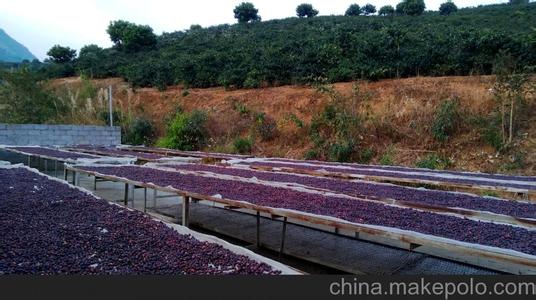Introduction to the flavor description of Cajan coffee beans in Burundi Bulongdi Champion processing Plant
Introduction to the flavor description of Cajan coffee beans in Burundi Bulongdi Champion processing Plant
[Bulongdi Champion processing Plant] is located at the Maerdadi Peak of the Panjia treatment Plant in Cabuye District, Cajun Province. It is very high above sea level, and even has mountains over 2000 meters above sea level. The soil is fertile, the soil is humid, and the coffee grows very well. It is generally recognized as the best coffee processing plant in Burundi.
Country: Burundi
Growth: 1750 m
Production area: Kayanza Kabuye
Baking degree: medium baking
Treatment method: traditional wet treatment
Variety: bourbon species
Processing plant: Parnjia processing plant
Flavor: sour citrus, lemon, orange, almond aromas
This is excellent news for countries that earn more than 80% of their foreign exchange earnings from coffee exports. Due to the abundant coffee growing season Rain Water and good field management, coffee production in 2004-05 was significantly higher than that of last year. According to Burundian officials, coffee bean production this year will reach 36000 tons, which is six times higher than last year (5600 tons). The United States, Starbucks, the largest coffee retailer in the world, said a few days ago that it would increase its purchase of coffee from Burundi. Industry insiders said that Starbucks' move is conducive to the economic development of Burundi. The New York Stock Exchange made a decision with the Burundian government and coffee production and export enterprises on February 17, 2005.
Burundi has the most diverse and successful coffee industry in the world, and has its own characteristics. Coffee in this country was introduced by Belgian colonists in 1930 and is now grown only on small farms. Unfortunately, many of these farms are on the border with war-torn Rwanda, putting pressure on coffee production. Almost all coffee produced in Burundi is Arabian coffee beans, while coffee trees in Ngozi are planted at an altitude of more than 1200 meters. Burundian coffee has a rich aroma and excellent acidity, and most of its products are exported to the United States, Germany, Finland and Japan.

Important Notice :
前街咖啡 FrontStreet Coffee has moved to new addredd:
FrontStreet Coffee Address: 315,Donghua East Road,GuangZhou
Tel:020 38364473
- Prev

Bali, Indonesia boutique coffee beans Karana Jinta Mani volcano Ubu processing plant sun-cured coffee flavor
Flavor description: raw beans exude strong cantaloupe and tropical fruit aromas; the entrance flavor changes to the sweetness of pineapple and strawberry jam, showing smooth and rich acidity at medium and low temperatures, with aromas of handmade black sugar, delicate dark chocolate and hazelnut; the overall flavor is excellent, like syrup-like texture and sweet taste, and the ripe fruit flavor of the sun even surpasses many of Central America.
- Next

Which brand of Yunnan geisha coffee beans are produced there?
Yunnan geisha coffee beans produced there which brand good price introduction has been adhering to sustainable ecological development and rainforest coffee cultivation for 30 years, won the international rainforest certification and alliance certification in June 2015, Starbucks Yunnan coffee experimental field is also selected here. After five years of breeding and planting, Rosa has been fully put into production in 2015. At the beginning of this year, Aiyi Group put the new coffee produced in Yunnan
Related
- Detailed explanation of Jadeite planting Land in Panamanian Jadeite Manor introduction to the grading system of Jadeite competitive bidding, Red bid, Green bid and Rose Summer
- Story of Coffee planting in Brenka region of Costa Rica Stonehenge Manor anaerobic heavy honey treatment of flavor mouth
- What's on the barrel of Blue Mountain Coffee beans?
- Can American coffee also pull flowers? How to use hot American style to pull out a good-looking pattern?
- Can you make a cold extract with coffee beans? What is the right proportion for cold-extracted coffee formula?
- Indonesian PWN Gold Mandrine Coffee Origin Features Flavor How to Chong? Mandolin coffee is American.
- A brief introduction to the flavor characteristics of Brazilian yellow bourbon coffee beans
- What is the effect of different water quality on the flavor of cold-extracted coffee? What kind of water is best for brewing coffee?
- Why do you think of Rose Summer whenever you mention Panamanian coffee?
- Introduction to the characteristics of authentic blue mountain coffee bean producing areas? What is the CIB Coffee Authority in Jamaica?

